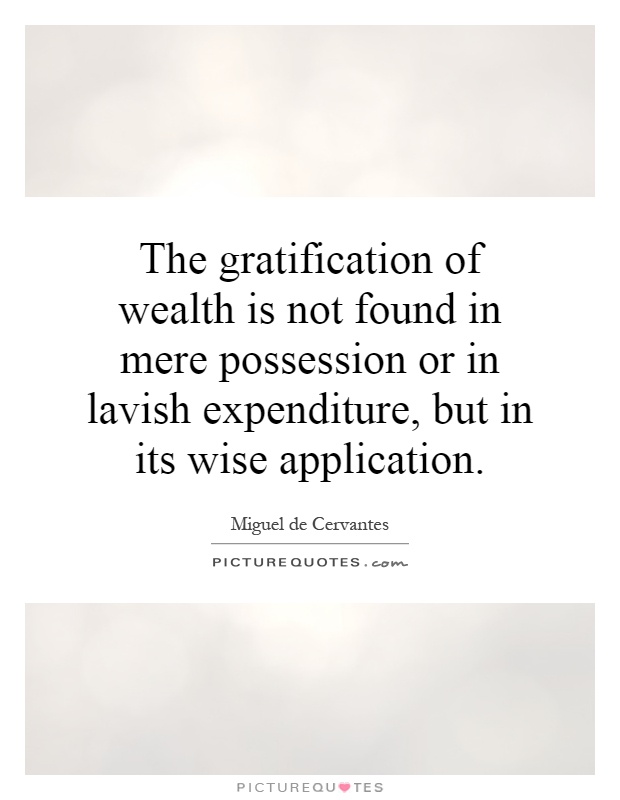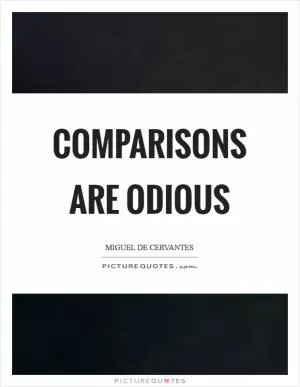The gratification of wealth is not found in mere possession or in lavish expenditure, but in its wise application

The gratification of wealth is not found in mere possession or in lavish expenditure, but in its wise application
Miguel de Cervantes, the renowned Spanish writer and author of the classic novel Don Quixote, understood the complexities of wealth and its true value. In his works, Cervantes often explored themes of greed, materialism, and the pursuit of riches. He believed that true gratification from wealth could not be found in mere possession or in lavish expenditure, but rather in its wise application.Cervantes himself experienced financial struggles throughout his life, facing bankruptcy and imprisonment at various points. These experiences likely shaped his views on wealth and its proper use. In Don Quixote, the titular character embarks on a quest for glory and riches, only to realize that true fulfillment comes from acts of kindness, bravery, and selflessness.
Cervantes believed that wealth should be used for the betterment of society and the well-being of others. In his writings, he often portrayed wealthy characters who were selfish, greedy, and morally bankrupt. These characters served as cautionary tales, warning against the dangers of placing too much importance on material possessions.
One of Cervantes' most famous quotes, "The gratification of wealth is not found in mere possession or in lavish expenditure, but in its wise application," encapsulates his belief that wealth should be used responsibly and with purpose. He believed that true wealth lies in the ability to make a positive impact on the world and to help those in need.












 Friendship Quotes
Friendship Quotes Love Quotes
Love Quotes Life Quotes
Life Quotes Funny Quotes
Funny Quotes Motivational Quotes
Motivational Quotes Inspirational Quotes
Inspirational Quotes